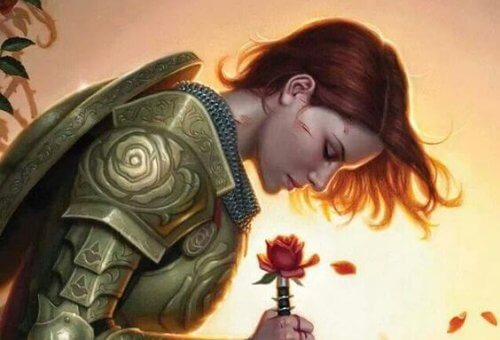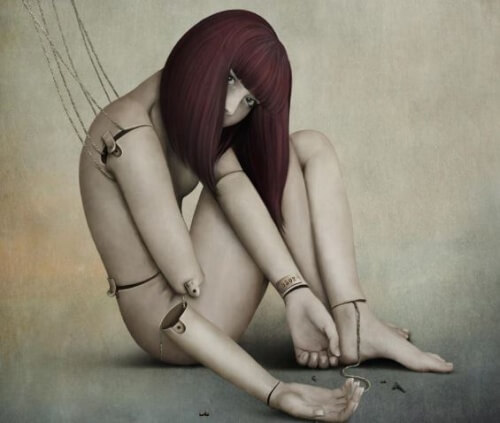Be the Heroine In Your Own Story, Not the Victim


Written and verified by psychologist Valeria Sabater
Being the heroine or the victim in your own story depends entirely on your attitude. Although it is difficult, you need to think about yourself and not let anyone violate your rights.
I hear a lot of people say that in life there are only two options: be the hero or the victim. But you don’t need to push things to these subtle extremes.
I also know that sometimes, it’s a complicated challenge to be yourself when it clashes with the interests of others.
Living with others isn’t easy, but in spite of the difficulties and possible disagreements, you should never fall into the abyss of being the victim in your own story.
The bumps in life are what teach you to be resilient. If you aren’t able to voice your own needs or respond to your own emptiness, you’ll be shipwrecked in turbulent waters.
So always remember: always be yourself. Be the heroine of your story that you want to tell your loved ones about tomorrow.
Read also: What is a Dysfunctional Family and How Does It Affect Children?
Being the victim is one option, but it is not the best path
Let’s start off by differentiating between the victim and victimhood. I’m sure that throughout your experiences in relationships, you have known people that resort to “victimhood”.
This is a type of manipulation and emotional development that is truly destructive. It involves having a kind of attitude where people project the blame for everything that happens to them onto others.
- They guilt-trip their loved ones to feel guilty for nearly everything.
- If they suffer from headaches and discomfort it’s because of how other people have let them down.
- Victimhood is a very effective way to control others, based on annulling other people.
“I make you feel bad and get you to feel guilty, which means that you lose your self-esteem. Your dignity is now under my control.”
- Chronic victimhood is a truly complex disorder that destroys family environments and several romantic relationships.
However, now that we’ve talked about that situation, let’s also realize that there are indeed situations in which someone truly is a victim. These people act with love, and are still overrun, despite their authenticity.

When you stop being the protagonist in your own story
This is a very common situation for women. A lot of women slowly stop being the protagonist in their own lives. But what makes it more complicated is that they do it out of love, out of caring for their dear ones.
Let’s take a look at a few examples in real life:
- Start a relationship and you give it your all.
- Have a family and you give them everything…to your kids and your partner.
- Love the people that give you your roots…your parents, siblings…
- You don’t realize it, but sometimes you focus all your energy, emotions, time and effort onto others until, after a few years, you discover something worrisome: Others have gotten used to always having you available. Whatever time of day. They take you for granted…you even take yourself for granted. You don’t have any personal space left, you no longer have time for yourself, and at the end of the day, you end up being the victim of your own circumstances.
You’ve done it all out of love, but love from others is, sometimes, selfish and asphyxiating.
So how could you react to these types of situations?

Read also: The Best Tips to Let Go of People Who Don’t Love You
You’re the victim, but you can put on your armor and stop being it
It seems you are the victim of a lack of respect, recognition. You’re the victim of a lack of love, loving words. You move forward, looking around, waiting for something.
You are desperate for consolation, support, hugs and a “thanks for everything you do for me.”
If this is how you feel right now, it’s time to react.
Victims have an advantage: they know what pain and suffering in silence are. The good thing about all of this is that you are aware of what you don’t want.
Facing your demons helps identify them much more.
- If you know what you don’t want in this life, demand what you need.
- Put on new armor. This doesn’t exactly mean drawing your sword and destroying everything. You don’t need to cut ties, relationships, and the life in which you live.
- The good warrior is wise and has a voice. Set your boundaries. Make it clear that you love them, but the person who loves also deserves dignity.
- Fight for your space. Defend those moments when you’re alone and can rest, moments when you can disconnect.
- If someone asks you for a favor, it’s not necessary that sooner or later, they give you a favor in return. What you’re asking for is recognition: you do it out of love, and love shouldn’t be put to shame, or even taken for granted.

To stop being a victim, there’s nothing better than sitting down to write a page of your own laws.
Make a list of things you are not going to allow. This should be your personal guide from here on out.
Become the heroine of your own story.
All cited sources were thoroughly reviewed by our team to ensure their quality, reliability, currency, and validity. The bibliography of this article was considered reliable and of academic or scientific accuracy.
- Marina, A. (2007). Anatomía del miedo. Structure, 1–22. https://doi.org/10.1017/CBO9781107415324.004
- Polo, L. (1998). La esperanza. Scripta Theologica, 1(30), 157–164.
-
Jakubicz, M. Woman empowerment.
-
Murdock, M. (2020). The heroine’s journey: Woman’s quest for wholeness. Shambhala Publications.
This text is provided for informational purposes only and does not replace consultation with a professional. If in doubt, consult your specialist.








